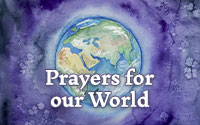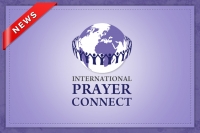A string of incidents over the past month has served as a reminder that despite the intense, decade-long focus on the jihadist threat, domestic terrorism is still an issue in the United States. On Aug. 5, Wade Page opened fire on the congregation of a Sikh temple in Oak Creek, Wisconsin, killing six and wounding three others. Though Page killed himself and did not leave any evidence explicitly listing his motives for the attack, his long association with the white supremacist movement was clearly a factor in his target choice.
On Aug. 15, Floyd Corkins shot and wounded a security guard in the lobby of the Family Research Council's office in Washington after the guard blocked him from entering the office. Corkins reportedly was carrying a bag containing a box of ammunition and a number of Chick-fil-A sandwiches. He apparently targeted the Family Research Council because of its public support for Chick-fil-A in the wake of the controversy over statements made by the fast food chain's founder regarding gay marriage. According to media reports, Corkins said, "I don't like your politics," before opening fire.
And on Aug. 16, an off-duty sheriff's deputy was shot and wounded while working as a security guard at an oil refinery in St. John the Baptist Parish, La. When two other deputies responded to a nearby trailer park where a vehicle reportedly associated with the shooting was spotted, the trailers' occupants ambushed and killed the deputies. An additional officer was wounded, along with two of the suspects involved in the shooting, Brian Smith and Kyle Joekel. Seven people have been arrested in connection with the incident, including Smith's father and brother. News reports indicate that the group was associated with the sovereign citizen movement, and members of it were under investigation for weapons offenses and previous threats to law enforcement officers in other states.
All three of these incidents stem from distinct ideological streams: the white supremacist skinhead movement, the radical left and the Posse Comitatus/sovereign citizen movement. While unrelated as far as timing and motive, when taken together they show that extremist ideologies subscribed to by certain individuals on the fringes of U.S. society continue to radicalize some to the point that they are willing to take violent action in accordance with those ideologies. Domestic terrorism is thus alive and well.
Old Streams
First, we need to remember that terrorism is a tactic practiced by actors from a wide array of ethnic and religious backgrounds who follow various ideologies stretching from anarchism to neo-Nazism. Terrorism does not equal jihadism. Long before jihadism reared its head in the United States, anarchist Leon Czolgosz assassinated President William McKinley, white supremacist James Earl Ray assassinated Martin Luther King Jr., and Posse Comitatus member Gordon Kahl killed three law enforcement officers in a multistate spree of violence.
Indeed, as we look at all of the recent attention being paid to lone assailants and small cells, it must be remembered that anti-government and white supremacist leaders in the United States embraced the leaderless resistance model of operations long before jihadist groups began to promote it…
The recent spate of incidents is also not all that unusual. Other examples stand out in recent years of different streams of domestic radicalism leading to a confluence of attacks by different types of actors. For example, on April 19, 1995, a large truck bomb built by anti-government extremists Timothy McVeigh and Terry Nichols detonated outside the Alfred P. Murrah Building in Oklahoma City, killing 168 people. Five days later, on April 25, timber lobbyist Gilbert Murray became the third fatality and final victim of Unabomber Theodore Kaczynski's long Neo-Luddite bombing campaign.
Another such convergence occurred in the summer of 1999. After conducting arsons at three Sacramento-area synagogues, brothers Matthew and Tyler Williams killed a gay couple in their home in Happy Valley, Calif., on July 1. On July 2, World Church of the Creator adherent Benjamin Smith began a multistate shooting spree that killed two and wounded nine and that only ended when he killed himself July 4. On Aug. 10, former Aryan Nations member Buford Furrow mounted an armed assault against a Jewish day care center in Los Angeles, during which he wounded five people before killing a Filipino-American mailman on the street.
Domestic terrorism in the United States is a cyclical phenomenon. There are discernable peaks in that cycle, like those we've discussed -- and like the one the country is currently experiencing. The intense political polarization that has occurred in recent years in the United States, the widespread distrust of the government on both the extreme right and the extreme left, and the current election-year rhetoric will further inflame political passions. This means that the current cycle of domestic terrorism plots and violence is likely to continue for at least the next several months.
Implications
While domestic terrorism is currently at the peak of the cycle in the United States, it is important to remember that most domestic terrorism cases tend to be simple attacks conducted by a lone actor or small cell. There are far more instances of simple bombings, such as those conducted by Olympic Park bomber Eric Rudolph or animal rights bomber Daniel Andreas San Diego, than the sort of large truck bomb attack committed by McVeigh and Nichols, which was an anomaly. Even more common than bombing attacks are the armed assaults that we've seen recently, and they are generally implemented against soft targets -- something we've talked about in relation to other terrorist threats.
And that means that the implications for domestic terrorist threats are essentially the same as they are for the jihadist or Iranian threat. First, it is critical for people to remember that terrorist attacks do not appear out of a vacuum. Individuals planning an attack -- no matter what their motivation or ideology -- follow a discernable cycle, and that cycle involves behavior that can be identified and detected before the attack is conducted. Indeed, it appears that the Smith family and their associates involved in the Louisiana shooting were known by authorities in several jurisdictions and were considered armed and dangerous.
It is also important for individuals to understand that it is physically impossible for governments to protect all potential targets from every sort of attack. This means that many places are vulnerable to an attack, should an assailant choose to strike and should the assailant's preoperational activities go undetected. Therefore, citizens need to assume responsibility for their own security. This involves citizens not only reporting suspicious activity to the authorities, but also practicing good situational awareness and having updated and appropriate contingency plans in place for their families and businesses.
http://www.stratfor.com/weekly/domestic-terrorism-persistent-threat-united-states?utm_source=freelist-f&utm_medium=email&utm_campaign=20120823&utm_term=sweekly&utm_content=title&elq=1a0dac08682f46d1b3c188c71c94d3a8
Al-Qaida Advertises for Suicide Bombers; China Steals 2.7M US Jobs; Cartels Bribe DHS Workers
1. Cartels’ Bribing of DHS Workers Raises Terrorist Threat
Mexican cartels are increasingly engaged in the “systematic corruption” of Department of Homeland Security (DHS) workers to expand their smuggling operations — including the trafficking of aliens from terrorism-linked countries. “Drug trafficking organizations (DTOs) have become not only more violent and dangerous, but more clever as well. The DTOs have turned to recruiting and corrupting DHS employees,” Charles Edwards, the acting DHS inspector general, told a hearing of a House Oversight and Government Reform subcommittee.
“A corrupt DHS employee may accept a bribe for allowing what appear to be simply undocumented aliens into the U.S. while unwittingly helping terrorists enter the country. Likewise, what seems to be drug contraband could be weapons of mass destruction, such as chemical or biological weapons or bomb-making materials. “According to government reports, DTOs are becoming involved increasingly in systematic corruption of DHS employees to further alien and drug smuggling, including the smuggling of aliens from designated special interest countries likely to export terrorism.”
Special interest countries are nations thought to pose a terrorist threat and include Pakistan, Afghanistan, Iran, Iraq, Yemen, and Somalia, CNS News pointed out in a report on Edwards’ testimony.
Edwards said border corruption may take the form of cash bribes, sexual favors, and other gratuities in return for U.S. employees allowing contraband or illegal aliens through inspection lanes — “or even protecting and escorting border crossings.”
He also said DHS employees may be bribed to leak or sell sensitive law enforcement information to smugglers, and provide them with documents such as immigration papers.
The cartels target employees who may be “going through financial difficulties, gambling, debts, [or] sexual infidelity,” he added.
Customs and Border Protection (CBP) Commissioner David Aguilar, who testified alongside Edwards, said that 141 CBP employees “have been arrested or indicted for acts of corruption” since October 2004.
Edwards warned in his written testimony that “while those who turn away from their sworn duties are few, even one corrupt agent or officer who allows harmful goods or people to enter the country puts the nation at risk.”
Organized gangs in Mexico are also increasingly involved in the theft of petroleum from the nation’s state-run oil company, Pemex, CNS News reported.
Pemex said on Aug. 10 that the national pipeline systems “are practically taken over by organized crime gangs associated with heavily armed groups.” Criminals use devices called “clandestine taps” to steal the oil from the pipelines. According to Pemex, more than 1.84 million barrels of oil were stolen from the pipeline system in the first six months of this year, meaning that on average, at least 17,500 gallons of oil were stolen per hour!
2. Al-Qaida Advertises for Suicide Bombers
The terrorist organization al-Qaida is running a “job ad” on an Internet forum seeking applicants for short-term employment — as suicide bombers. The ad on the Shumukh al-Islam forum, which is accessible only to al-Qaida members, appears under the heading “Area of activity: The planet Earth.”
Applicants must be Muslim, mentally mature, dedicated, able to listen, and utterly committed to completing their mission, according to the ad.
While real names are not required, candidates are asked to send details of their nickname or handle, their age, marital status, languages spoken, and a list of passports in their possession, the Hebrew daily Yedioth Ahronoth reported.
The ad also specifies the targets of the suicide attacks that applicants will be expected to carry out, including “People who fight Islam and Muslims” and enemy “financial, military and media targets.”
And it states: “Only one person will be in charge. He will gather all of the intelligence, he will prepare the operation — and he will complete the attack.” However, “a military panel” will oversee the bomber’s training and select the target.
The job description promises only a “very slight chance of being caught.” The Yedioth article claimed the ad has elicited several positive responses. The Times of Israel observed that the ad indicates al-Qaida is “apparently low on bombers.”
From: Newsmax.com (This email address is being protected from spambots. You need JavaScript enabled to view it.)
Date: Sun, Aug 26, 2012 at 8:21 AM
Please pray that citizens and also public officials in the US and elsewhere will be watchful about potential domestic and international acts of terrorism and will be able to counteract them effectively.



